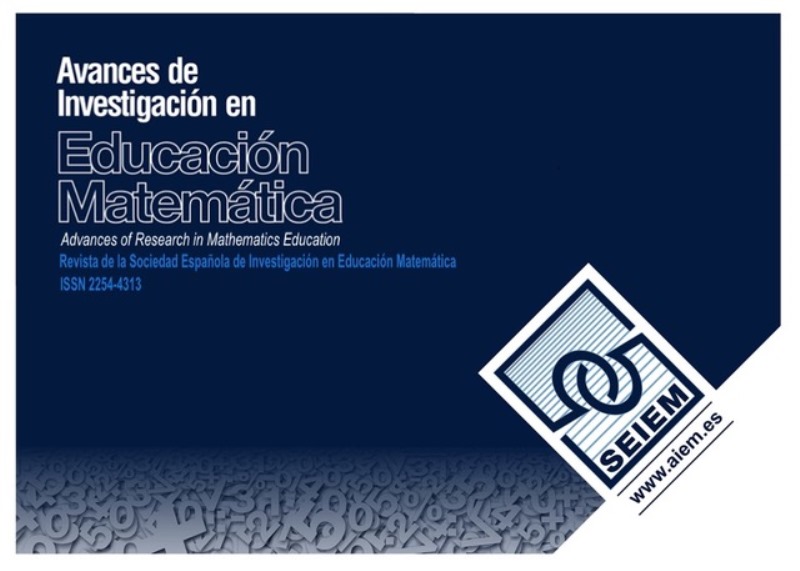El papel de la modelización en una experiencia de enseñanza de matemáticas basada en indagación
DOI:
https://doi.org/10.35763/aiem.v0i16.283Palabras clave:
Modelización matemática, indagación, educación primaria, contexto arqueológico, co-disciplinariedadResumen
El objetivo de este artículo es investigar cómo la indagación puede promover la modelización. Se presenta el análisis de los procesos de modelización que emergieron en la implementación de una secuencia didáctica de Enseñanza de las Matemáticas Basada en Indagación. Se trata de una experiencia co-disciplinar, realizada con 23 estudiantes de segundo ciclo de educación primaria de una escuela pública de Badalona en la que, a partir de una situación inicial, el descubrimiento de un tesoro en una casa romana de Baetulo, se busca responder a quién pudo pertenecer. La metodología consiste, básicamente, en encontrar, en la implementación de dicha secuencia didáctica, evidencias que permitan inferir la aparición de alguno de los subprocesos del modelo del proceso de modelización que se toma como referencia teórica. El principal resultado es que el proceso de indagación propicia la emergencia
de subprocesos de modelización matemática
Descargas
Descargas
Publicado
Cómo citar
Número
Sección
Licencia
Los trabajos se publican bajo una licencia de Creative Commons: Reconocimiento 4.0 España a partir del número 21 (2022).
Los autores que publican en esta revista están de acuerdo con los siguientes términos:
- Los autores conservan los derechos de autor y el reconocimiento de la autoría.
- Los textos publicados en esta revista están sujetos –si no se indica lo contrario– a una licencia de Reconocimiento 4.0 Internacional de Creative Commons. Puede copiarlos, distribuirlos, comunicarlos públicamente, hacer obras derivadas y usos comerciales siempre que reconozca los créditos de las obras (autoría, nombre de la revista, institución editora) de la manera especificada por los autores o por la revista. La licencia completa se puede consultar en http://creativecommons.org/licenses/by/4.0.
- Los autores pueden establecer por separado acuerdos adicionales para la distribución no exclusiva de la versión de la obra publicada en la revista (por ejemplo, situarlo en un repositorio institucional o publicarlo en un libro), con un reconocimiento de su publicación inicial en esta revista.
- Se permite y se anima a los autores a difundir sus trabajos electrónicamente (por ejemplo, en repositorios institucionales o en su propio sitio web) antes y durante el proceso de envío, ya que puede dar lugar a intercambios productivos, así como a una citación más temprana y mayor de los trabajos publicados (Véase The Effect of Open Access) (en inglés).









